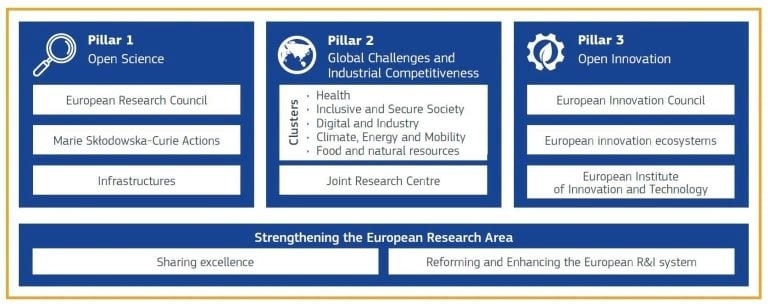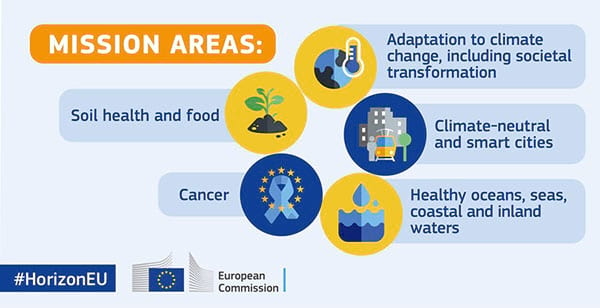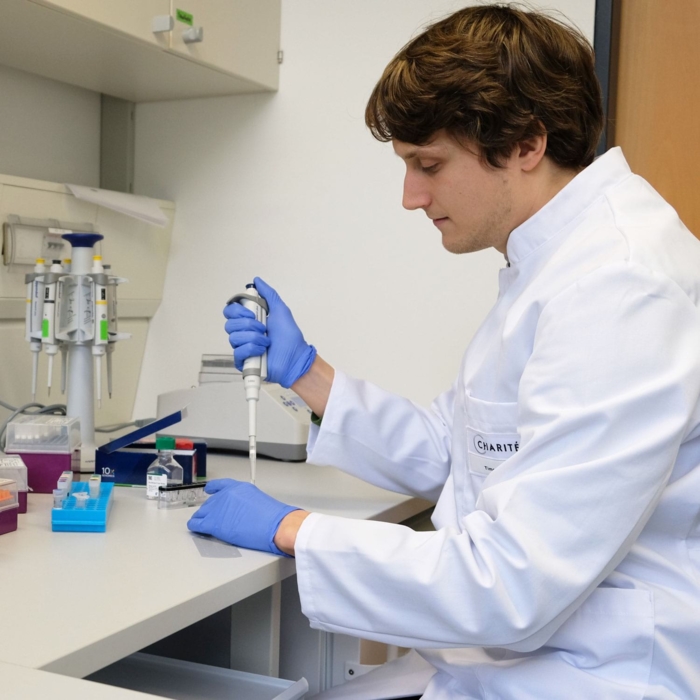The European Union (EU) has been supporting individual researchers and the consortia of research organisations, universities, and businesses through multiannual funding programmes known as ‘Research and Innovation Framework Programmes’ since the early ‘80s
On January 1, 2021, the EU launched Horizon Europe, the ninth programme in the series. Horizon Europe replaces the previous framework programme, Horizon 2020, through which two of LINQ’s ongoing projects, EUCANCan and ESPACE, have received funding.
Horizon Europe is, just like its predecessor, made up of three pillars:
- open science
- global challenges and industrial competitiveness, and
- open innovation.

What is new in Horizon Europe?
Following the mantra ‘evolution, not revolution’, Horizon Europe will have a strong degree of continuity with Horizon 2020. However, some new goals and features will be introduced. These are summarized below.
5 mission areas
Horizon Europe defined five mission areas:
- Adaptation to climate change including societal transformation
- Cancer
- Climate-neutral and smart cities
- Healthy oceans, seas, coastal and inland waters
- Soil health and food
A mission board of 15 members will be assigned for each mission. The board members will co-design the mission with associated calls for projects with member states, stakeholders, the European Parliament, and citizens.

New approach to European Partnerships
Horizon Europe will support European partnerships with EU countries, the private sector, foundations, and other stakeholders and work closely together with other EU programmes and policies, such as InvestEU, Erasmus+, EU Cohesion Policy, Digital Europe, European Structural and Investment Funds, Connecting Europe Facility, and the Recovery and Resilience Facility.
For the first time in the history of the framework programmes, Horizon Europe allows regions to, on a voluntary basis, transfer part of their regional funds to the programme to be used in research and innovation activities in their region.
Horizon Europe will reinforce openness
Open Science will become the modus operandi of Horizon Europe. It will go beyond the open access policy of Horizon 2020 and require open access to publications, data, and research data management plans.
Launching the European Innovation Council
The European Innovation Council (EIC), which is already running in a pilot phase, will receive over €10 billion in budget over the next seven years to provide support for emerging and breakthrough innovations by small and medium-sized enterprises (SMEs), start-ups, and midcaps. The EIC will complement the European Institute of Innovation and Technology (EIT).
Simpler rules
In Horizon Europe, the Commission has cut unnecessary red tape to ensure that taking part in EU research and innovation will become easier than before. According to the Commission’s publication Participating in Horizon Europe, the simplified rules serve to ‘attract the best researchers and the most innovative companies’.


